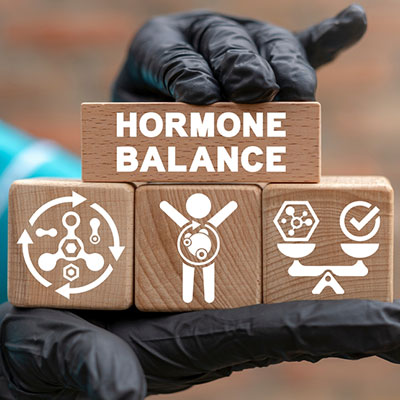High Prolactin Treatment in Vijayawada
Prolactin is a hormone produced primarily by the anterior pituitary gland, which plays a crucial role in lactation and reproductive health. Its primary function is to stimulate the mammary glands to produce milk after childbirth, supporting breastfeeding. Beyond its role in lactation, prolactin also influences reproductive functions by regulating menstrual cycles, ovulation, and sperm production. Additionally, prolactin has over 300 different biological activities, including immune system modulation, osmoregulation, and metabolic regulation. Its secretion is controlled by the hypothalamus through the inhibitory hormone dopamine, which suppresses prolactin release. Factors such as pregnancy, breastfeeding, stress, and certain medications can increase prolactin levels, while others, like dopamine agonists, can decrease it. Abnormal prolactin levels can lead to various health issues; elevated levels, known as hyperprolactinemia, can cause menstrual disturbances, infertility, and inappropriate milk production, whereas low levels may be associated with reproductive problems. Prolactin levels are typically measured through blood tests, especially in cases of reproductive or hormonal disorders. Overall, prolactin is essential for reproductive health and has diverse physiological roles beyond lactation, making it a vital hormone in maintaining bodily functions related to reproduction, immune response, and metabolic regulation and needs attention of hyperprolactinemia doctor in Vijayawada in case of any issues

Problems due to excess prolactin:
Excess prolactin, a condition known as hyperprolactinemia, can significantly impact the body, primarily affecting reproductive health. Elevated prolactin levels inhibit the secretion of gonadotropin-releasing hormone (GnRH), leading to decreased production of luteinizing hormone (LH) and follicle-stimulating hormone (FSH), which can cause irregular or absent menstrual periods in women, and reduced libido and infertility in both sexes. In women, hyperprolactinemia may also cause galactorrhea, the spontaneous production of breast milk unrelated to pregnancy or breastfeeding, and can lead to osteoporosis over time due to decreased estrogen levels needing attention of prolactinoma specialist in Vijayawada. Men often experience symptoms such as decreased testosterone levels, erectile dysfunction, reduced libido, and infertility, with some developing gynecomastia. Excess prolactin can also cause symptoms like headaches and visual disturbances if a prolactinoma—a benign pituitary tumor—is present, due to pressure on surrounding brain structures. Moreover, high prolactin levels may influence immune regulation and contribute to mood disturbances like depression or anxiety. The underlying causes of hyperprolactinemia include pituitary tumors, certain medications, hypothyroidism, and other systemic conditions, and treatment typically involves dopamine agonists which inhibit prolactin secretion. Managing excess prolactin is crucial to restoring hormonal balance, improving reproductive function, and preventing long-term complications such as osteoporosis or persistent tumor growth.
Managing prolactin excess:
Prolactin excess, or hyperprolactinemia, can be effectively managed through prolactin excess treatment in Vijayawada, which is a combination of medical, surgical, and lifestyle interventions. The primary treatment involves pharmacotherapy with dopamine agonists such as bromocriptine or cabergoline, which work by stimulating dopamine receptors in the pituitary gland, thereby reducing prolactin secretion. These medications are typically well-tolerated and can restore normal prolactin levels, leading to the resolution of symptoms like galactorrhea and amenorrhea. In cases where medication is contraindicated or ineffective, surgical intervention through transsphenoidal adenomectomy may be considered to remove prolactin-secreting adenomas. Additionally, radiation therapy is rarely used but may be an option for resistant tumors. Dr. S. L. Sravya suggests that managing underlying conditions, such as hypothyroidism, which can elevate prolactin levels, is also crucial. Lifestyle modifications, including stress reduction and avoiding medications that elevate prolactin (e.g., certain antipsychotics and antihypertensives), can support overall management. Regular monitoring of prolactin levels is essential to assess treatment efficacy and adjust therapy accordingly. For women desiring pregnancy, careful management with dopamine agonists is necessary, often involving temporary discontinuation during pregnancy under medical supervision. Overall, a tailored approach such as that at Esha Endocrine Centre based on the etiology, tumor size, and patient-specific factors ensures effective control of hyperprolactinemia and its associated symptoms.
